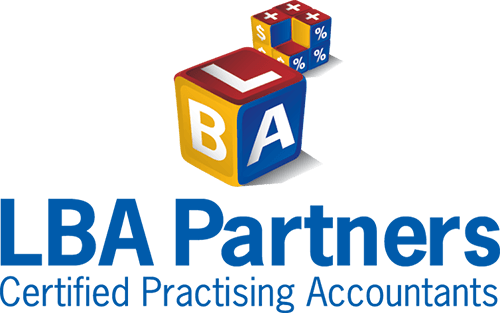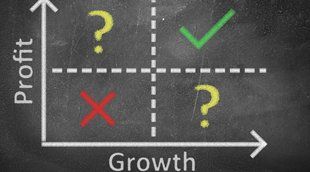Here's our latest newsletter, if you would like to follow up any of the information please contact Linda or Grahame
P r a c t i c e U p d a t e
September 2015
ATO's apps and other online tools
As a result of user feedback, the ATO has improved their ATO Small Business app and it continues to expand in functionality and usability.
The most useful features for small business include:
¨ ABN Lookup, which verifies business details.
¨ Tax withheld calculator, which shows how much tax to withhold.
¨ Key dates, which can set important tax and super reminders and alerts.
¨ Report a concern, which enables users to report suspected tax evasion.
The ATO has also released a new function for the app which includes a business performance check tool (which provides a snapshot of profitability, cash flow, working capital and debt serviceability).
It also compares a business's performance against similar businesses in its industry using the benchmark database.
'myDeductions' online tool
Another online tool that came live recently is "myDeductions", which allows taxpayers to upload their receipts and information for deductions for the 2015/16 year. Taxpayers are advised to simply take a photo of a receipt and upload it.
The deductions covered include work-related expenses, car expenses (it also includes a trip information calculator using Google maps) and other travel expenses, uniforms, self-education, and other types of deductions (such as the cost of managing tax affairs and donations).
Data will be stored in the taxpayer's mobile device and, at the end of the financial year, can be shared with their tax agent.
The ATO's new approach to dispute resolution
According to the Commissioner of Taxation, Chris Jordan, the ATO has put in place a number of strategies to resolve disputes as early as possible, in a way that is "less painful, less costly and better for participation in the system in the long run".
"We've also increased use of Alternative Dispute Resolution (ADR) . . . ADR is cheaper, faster and often a more successful path to sorting things out instead of drawn out legal disputes."
In addition, in response to concerns about ATO officers from the same department reviewing each other's decisions when challenged by taxpayers, their small business objections work has been moved out of the ATO's Compliance group to their separate Review and Dispute Resolution area under a different Second Commissioner: "This is intended to give anyone in dispute with us, a fresh set of eyes to the issue".
Editor: He also stated that the ATO is working with other government agencies to improve the experience for small businesses, such as working with Business Enterprise Centres, to help new businesses get off the ground, and leading 'Small Business Fix-It squads' across government to discuss the issues small business owners face and what they can do to fix them, such as redesigning the ASIC business name transfer process to reduce red tape.
ATO data matching program – visa holders
The ATO has advised that it has developed a Visa Holders Data Matching Program with the Department of Immigration and Border Protection to assist it to effectively detect and deal with compliance risks within the visa holding population.
The ATO intends to acquire visa information for visas granted between 1 July 2013 to 30 June 2015, and future periods between 1 July 2015 and 30 June 2017 (it is estimated that the total number of records that will be obtained is for more than one million individuals).
The purpose of this data matching program is to ensure that taxpayers are correctly meeting their taxation obligations, including registration, lodgment, reporting and payment responsibilities.
- Information sought includes:
- address and contact history for visa applicants and sponsors and for migration agents (who assisted or facilitated the processing of the visa);
- information on all visa grants;
- all international travel movements undertaken by visa holders (arrivals and departures); and
- details on education providers (i.e., educational institutions where a student visa holder intends to undertake their study).
Editor: In terms of data matching, the government has also confirmed that the transaction types below that occur after 30 June 2016 will be reported by relevant third parties to the ATO:
- payments of grants and other financial benefits for services to government entities;
- transfers of securities; and
- business transactions made through electronic payment systems, such as credit and debit cards and online payment methods.
New guidance from ATO regarding GST for Uber (and similar) drivers
Editor: For those clients providing 'ride-sourcing services' (such as those offered via Uber), the ATO's latest communication on this matter contained the following example.
"If you provide ride-sourcing services to the public you are likely to be carrying on an enterprise.
"If you are registered, or required to be registered, GST must be calculated on the full fare, not the net amount you receive after deducting any fees or commissions.
"For example, if a passenger pays $55 and the facilitator pays you $44 (after deducting an $11 commission), the GST payable is $5 (not $4).
"GST credits on your business purchases can be claimed, but must be apportioned between business and private use.
"For example, if you use your car 10% for ride-sourcing and 90% for private purposes, and you:
¨ buy a new car to use for your ride-sourcing activity for $33,000 (including $3,000 GST), you may claim a GST credit of $300;
¨ pay $110 for fuel (including $10 GST), you may claim a GST credit of $1; and
¨ pay $220 for a service (including $20 GST), you may claim a GST credit of $2."
Registering an SMSF for an ABN
Editor: The ATO has provided the following advice regarding self-managed superannuation funds (SMSFs) applying for an ABN. The guidance is probably most relevant where a person aged over 65, who is not working, wishes to set up a new SMSF and roll over into that SMSF an amount from another fund. If you have any issues, please contact our office.
An SMSF cannot be registered if no assets are held. Therefore:
- If a member expects to receive a rollover, transfer or contributions in the near future, an SMSF can be established with a nominal amount (for example, $10). Once an ABN is issued, a bank account can be opened and the $10 deposited. The $10 is regarded as a contribution and allocated to a member.
- Where a member cannot contribute to the SMSF (for example, they are 65 or over and do not meet the work test), the ATO can apply an administrative discretion to allow this nominal contribution. In all cases, the nominal contribution must be allocated to the member solely for the purpose of registering the SMSF. The member must receive further money into the SMSF (such as a roll-over) before the end of the income year the fund was established.
Please Note: Many of the comments in this publication are general in nature and anyone intending to apply the information to practical circumstances should seek professional advice to independently verify their interpretation and the information's applicability to their particular circumstances.
Management Consulting
We have the know-how and experience to offer advice that helps you run your business more effectively.
Self-Managed Superannuation Funds
At LBA Partners we provide the professional advice you need to manage your own fund and greatly simplify the process for you.



